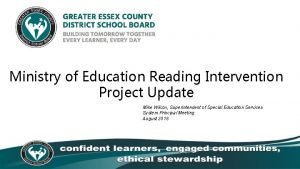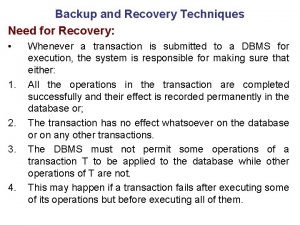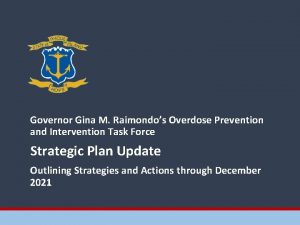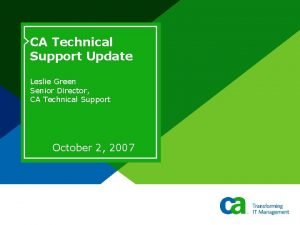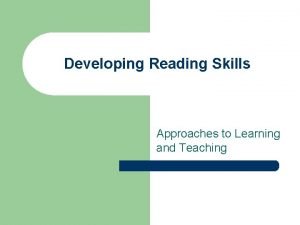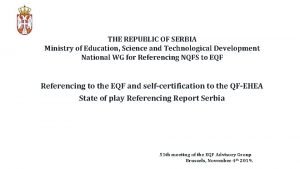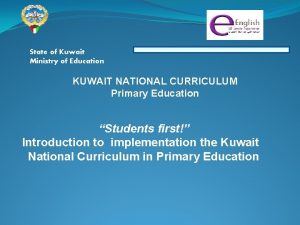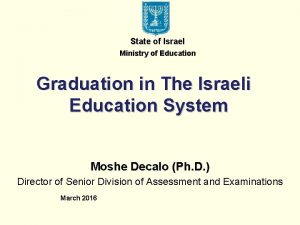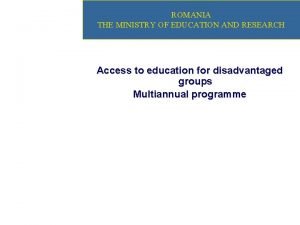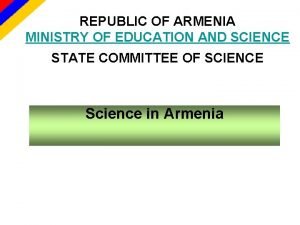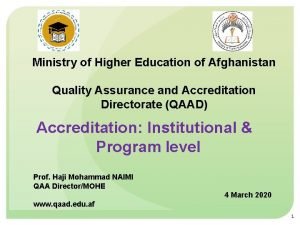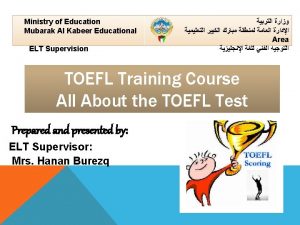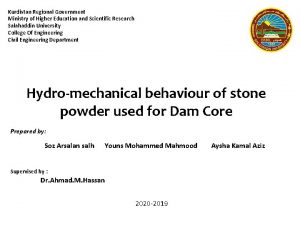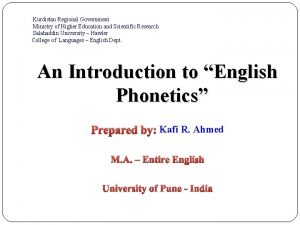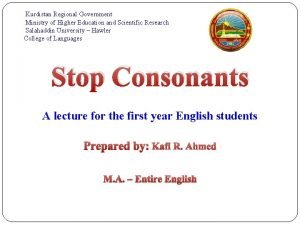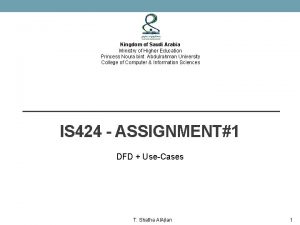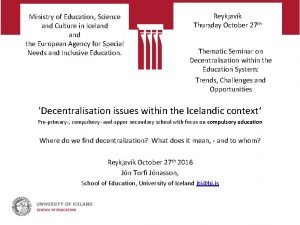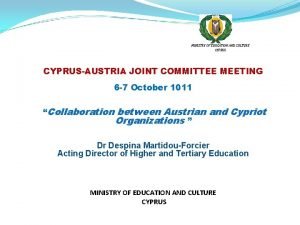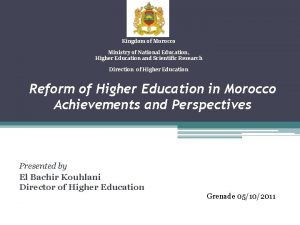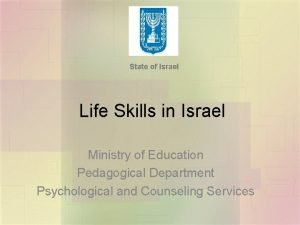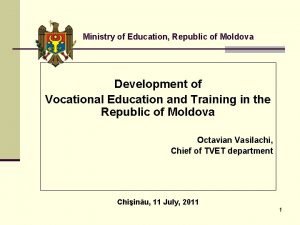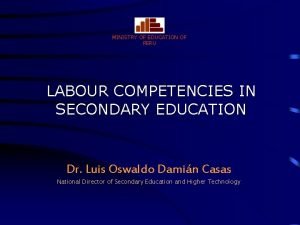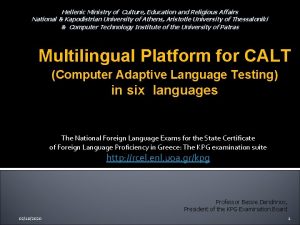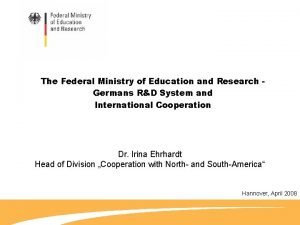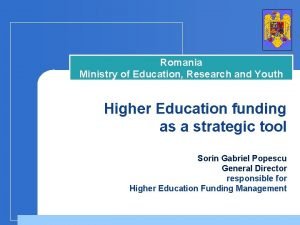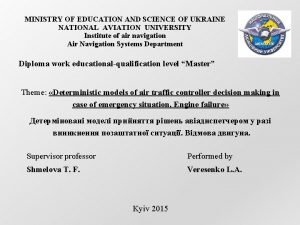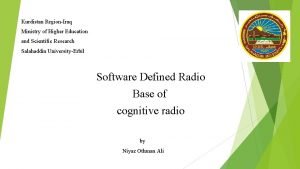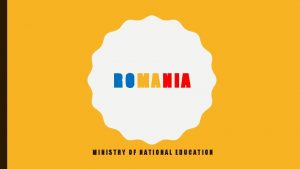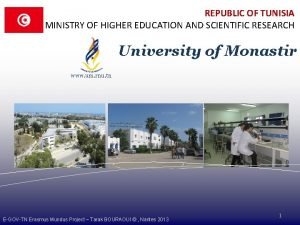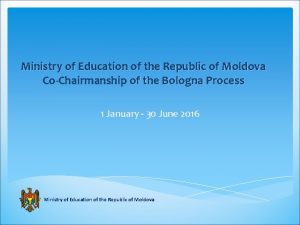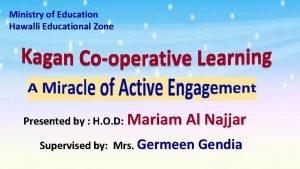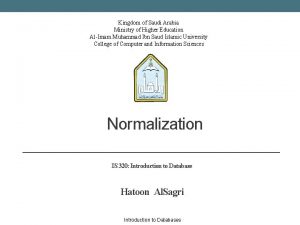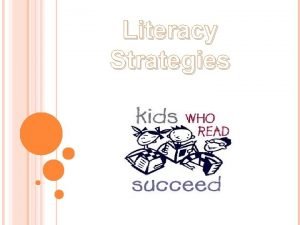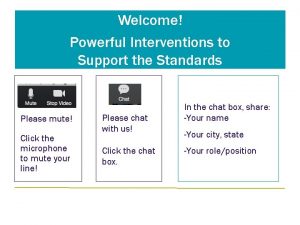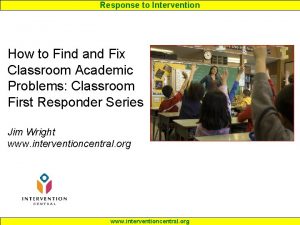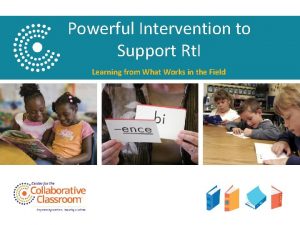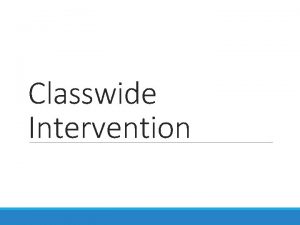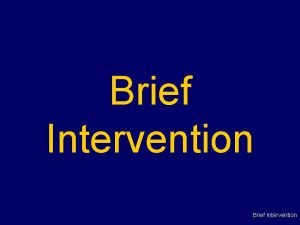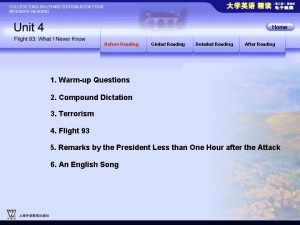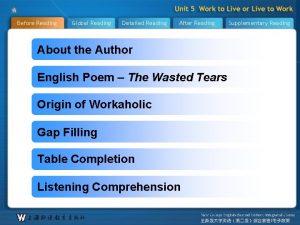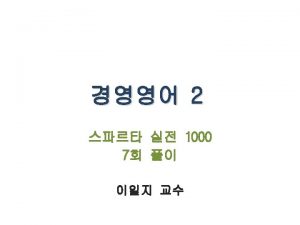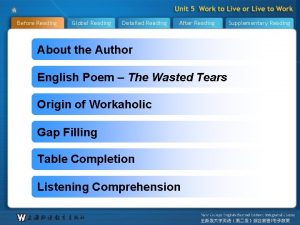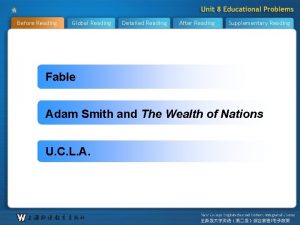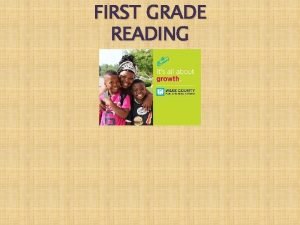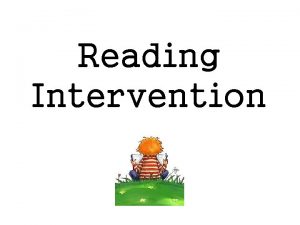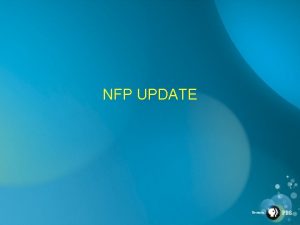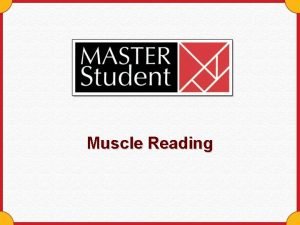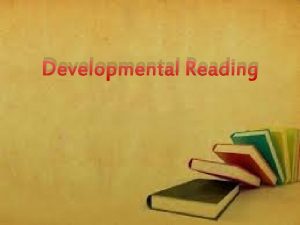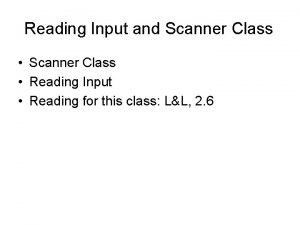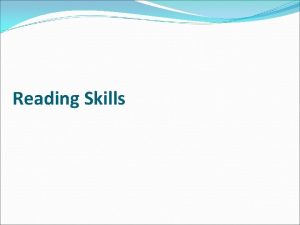Ministry of Education Reading Intervention Project Update Mike








































- Slides: 40

Ministry of Education Reading Intervention Project Update Mike Wilcox, Superintendent of Special Education Services System Principal Meeting August 2018

Contextual Information – Ministry Of Education (MOE) Research Project • • In fall of 2016, ten schools were originally selected to participate in the MOE Research Project for Learning Disabilities (LD) LSTs received training from Sick Kids Hospital staff on the Empower Reading Program. Teachers were provided with the resources and the ongoing support of an Empower Coach who has worked with them over the past two year. The intervention consisted of a withdrawal program one period per day for the entire school year.

Student Selection for Empower - MOE Research Project • • • Grade 3 Weak academic achievement; reading, writing, spelling skills far below grade level Has had previous intervention without success Grade 2 Insight Assessment results – Crystalized Knowledge scores are below 69 (strongest predictor of basic reading skills) May or may not be identified through IPRC Specific discrepancy between academic achievement and assessed intellectual ability (profile of the LD learner)

Empower Only Begley Dougal Ford City Northwood Vista

Empower and Lexia Giles King Edward Marlborough Prince Edward Talbot Trail

Lexia Following Empower (added in 2017 -18) Amherstburg Brock Jack Miner Roseville Westgate










GECDSB’s Three Delivery Models in all 15 Schools: DRA Results (Empower Only, Lexia after Empower, Empower and Lexia concurrently)

Report Card Analysis: Comparison of Reading Grades

Report Card Analysis: Comparison of Writing Grades

Report Card Analysis: Comparison of Writing Grades

Report Card Analysis: Comparison of Math Grades

Report Card Analysis: Comparison of Math Grades

Report Card Analysis: Comparison of Math Grades

Report Card Analysis: Comparison of Math Grades

Report Card Analysis: Comparison of Math Grades

Lexia Core 5 Reading All of GECDSB elementary schools used Lexia Core 5 as a Tier 2 intervention (with a focusing on students in grade 2 and 3). The chart below displays the grade level lessons in Lexia. Pre-Kindergarten Lexia Level 1 Kindergarten Lexia Level 2 -5 Grade 1 Lexia Level 6 -9 Grade 2 Lexia Level 10 -12 Grade 3 Lexia Level 13 -14 Grade 4 Lexia Level 15 -16

Lexia: Grade 2

Lexia: Grade 3 Table 6. Descriptive Statistics Table 7. Change in GLM Level Across Term

Pierce Harris Children’s Self Concept – Socio-Emotional Measurement The Pierce Harris Children’s Self Concept Scale provides an overall view of an individual’s self-perception. It was administered in the fall prior to the introduction of Empower for each student. It was again delivered at the end of June to measure impact, post intervention. There was an improvement in all scores from pre- to post-intervention. However, not all were statistically significant findings, which may be attributable to small sample size.

Pierce Harris Children’s Self Concept – Socio-Emotional Measurement Key Findings: • Overall student self-concept improved significantly following intervention. This finding highlights the fact that the intervention not only improved academic performance, but also improved their overall sense of self and well-being. • Behaviour adjustments also improved after intervention which indicated a decrease in self-report of problematic behaviours. • Happiness and overall life satisfaction increased significantly indicating a much more positive outlook on life.

Use of Technology In the fall of 2017, sixty-five Grade 4 students who were part of the Empower Study (year one) were interviewed. All were beginning grade 4 and had been given an IPAD the previous year to support and assist in their learning. Training for the students, classroom teachers and LSTs was also provided by Learning Disabilities Association of Windsor-Essex. The purpose of the interview was to determine how and to what level of success the IPADs were being used across the school day.

Q 2. Do you have your i. Pad with you during the day when you are not doing Empower?



Students with Empower – Focused Interviews




Conclusions: 1. The Empower Program has both a direct and indirect impact on student performance across subject areas over time. 2. Students who have both Empower and Lexia have positive results in reading performance. However, additional tools need to be used to measure progress across the three delivery models. 3. Students using the Empower Program have shown clear and sometimes remarkable improvement in their reading skills/abilities. 4. Students using Lexia only as a Tier 2 intervention, when meeting the recommended usage (80 minutes/week), are improving in their reading/writing skills/abilities. This is one component/factor of the literacy program.

5. The improvement in reading skills is not only evident during the 60 minutes of intervention, but in reading and writing over the course of the day. 6. In writing, Empower continues to have a positive impact on students’ ability to complete writing tasks following intervention. Note that students are assigned assistive technology which may have also improved their ability to perform writing tasks. 7. In Math, there seems to be a secondary effect on mathematics performance leading to some improvements but with greater variability then is seen in reading and writing. 8. The intervention clearly resulted in an increase in the overall self-concept and well-being of our students. 9. The use of technology to support learning/achievement has had a positive impact on our students.

Moving Forward Into Year 3: • • • Empower will continue to be utilized in every elementary school. Training for LSTs new to Empower has been scheduled for September 12 th and 13 th. The Empower Coaches will continue to support our LSTs with implementation. Lexia licenses are purchased and in place for Tier 2 in Grades 2 and 3 classes until August 2020. Communication regarding Lexia for all involved teachers and administrators occurs in the Edsby Group “Lexia. ” The 10 schools selected for the Ministry of Education LD Research Project will remain the same for the 2018/2019 school year. Our Board’s research will continue to gather information on these schools as well as the 5 schools whose students have Lexia following Empower. OSIE, which is conducting the research on behalf of the Ministry of Education, will again be visiting all the research project schools to conduct pre and post assessments and interviews during the 2018/2019 school year.
 Mike intervention update
Mike intervention update Is an alternative of log based recovery.
Is an alternative of log based recovery. Intervention gina update
Intervention gina update Leslie intervention update
Leslie intervention update Pre reading while reading and post reading activities
Pre reading while reading and post reading activities Ministry of education serbia
Ministry of education serbia Ministry of education kuwait
Ministry of education kuwait Matriculation certificate
Matriculation certificate Ministry of education and research romania
Ministry of education and research romania Ministry of education armenia
Ministry of education armenia Ministry of higher education afghanistan
Ministry of higher education afghanistan تعليم الخاص مبارك الكبير
تعليم الخاص مبارك الكبير Ministry of education krg
Ministry of education krg Krg ministry of higher education
Krg ministry of higher education Krg ministry of higher education
Krg ministry of higher education Ministry of higher education saudi arabia
Ministry of higher education saudi arabia Ministry of education iceland
Ministry of education iceland Ministry of education and culture cyprus
Ministry of education and culture cyprus Ministry of education morocco
Ministry of education morocco Life skills
Life skills Ministry of education
Ministry of education Ministry of education peru
Ministry of education peru Ministry of education secondary engagement program
Ministry of education secondary engagement program Hellenic ministry of education and religious affairs
Hellenic ministry of education and religious affairs Ministry of education
Ministry of education Ministry of education and research romania
Ministry of education and research romania Ministry of education
Ministry of education Ministry of education and science of the russian federation
Ministry of education and science of the russian federation Ministry of higher education erbil
Ministry of higher education erbil Ministry of national education romania
Ministry of national education romania Ministry of higher education tunisia
Ministry of higher education tunisia Ministry of education moldova
Ministry of education moldova Ministry of education zone 1
Ministry of education zone 1 Ministry of higher education saudi
Ministry of higher education saudi Lli reading intervention
Lli reading intervention Sipps extension level
Sipps extension level Intervention central reading fluency
Intervention central reading fluency Sipps reading intervention
Sipps reading intervention Bankhead primary school
Bankhead primary school Bankhead primary rutherglen
Bankhead primary rutherglen Project status examples
Project status examples
